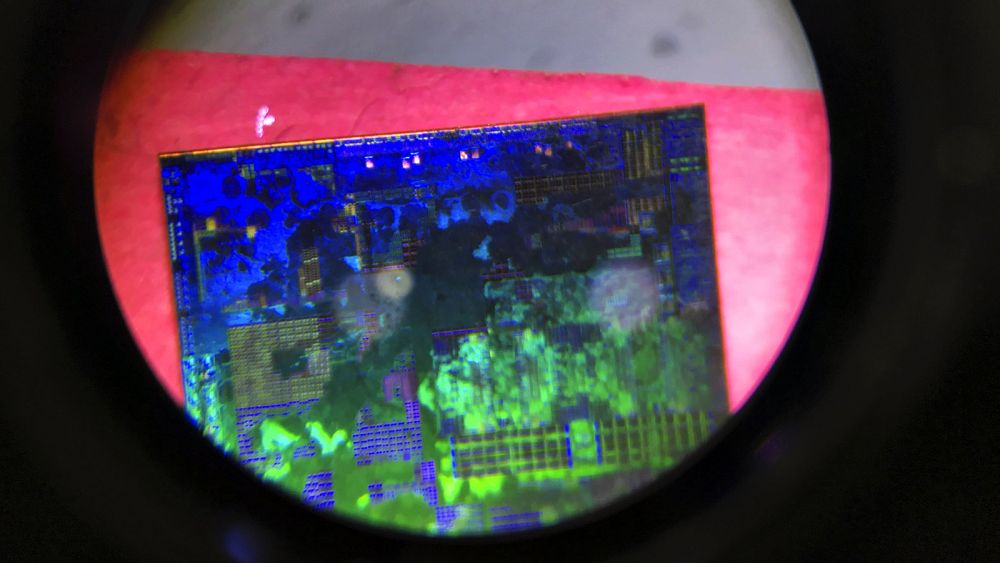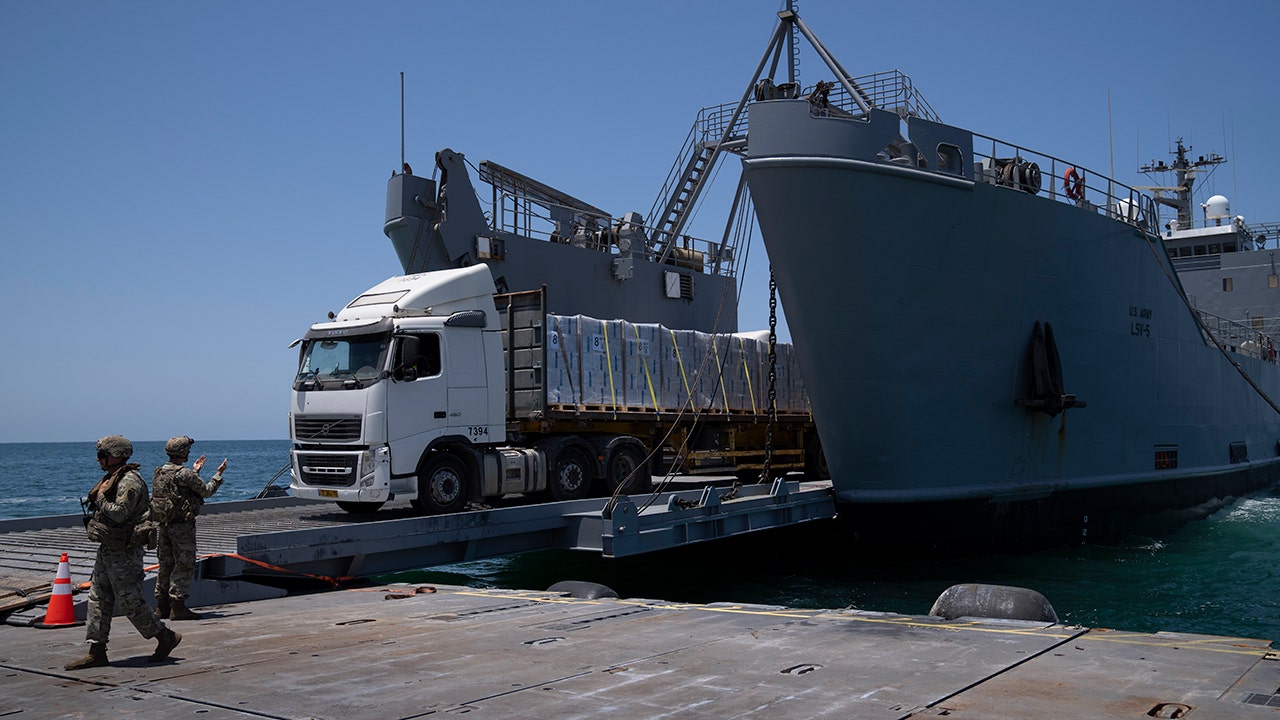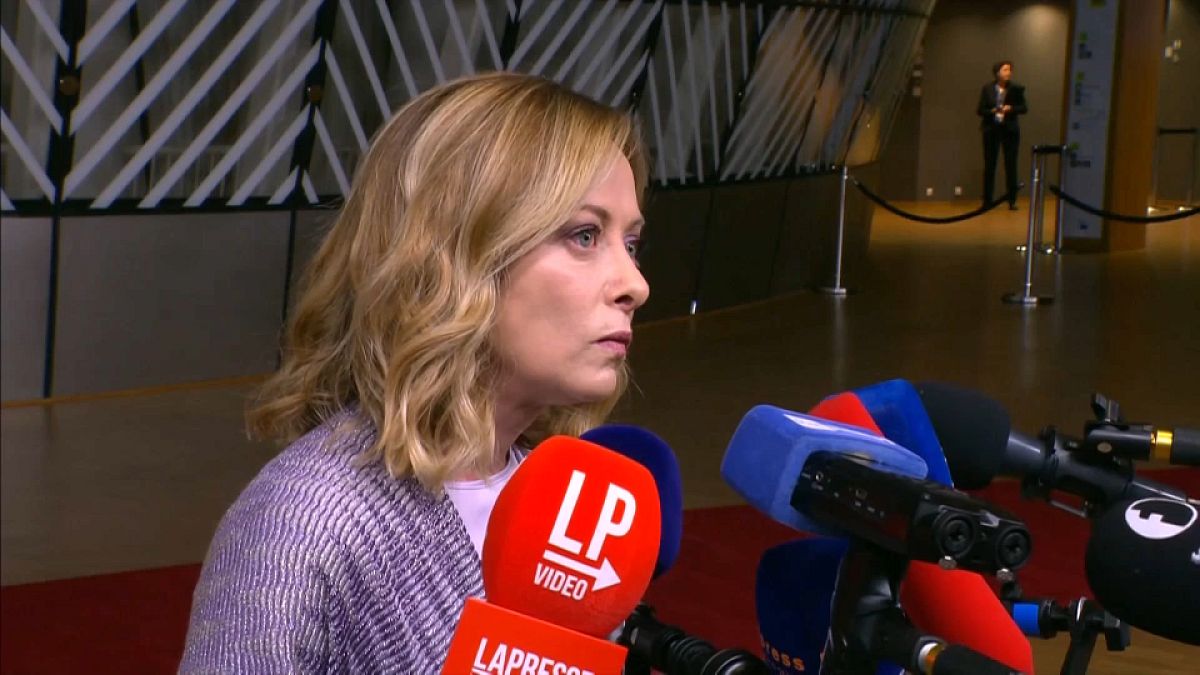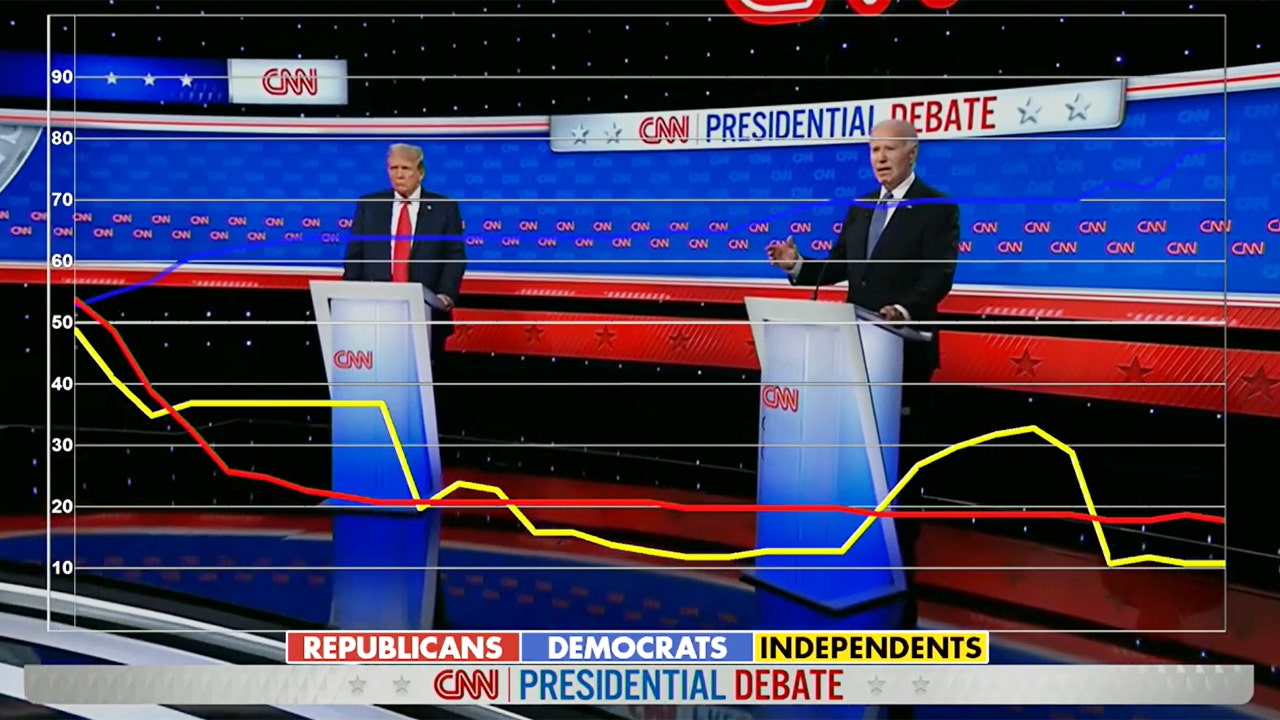World
China restricts exports of two metals the EU considers ‘strategic’

China has imposed restrictions on the exports of gallium and germanium, ratcheting up trade tensions with Western allies.
Gallium and germanium are silvery-white metals that can be found in a wide variety of electronics, such as semiconductors, smartphones, pressure sensors, transistors and fibre optics, as well as solar panels, camera lenses and space systems.
Invoking “national security interests,” the Chinese Ministry of Commerce said on Monday that companies that intend to sell products containing the two targeted materials would need to first obtain an export licence.
In practice, this means that if the central government refuses to issue the licence, the company will be outright banned from exporting.
The government will treat the merchandise as a “dual-use” item, a term that describes goods that can be employed for commercial and military purposes and therefore warrant an extra layer of oversight.
The rules will apply as of 1 August, the ministry said.
The unexpected news from Beijing put Brussels on high alert, as it comes in the midst of a renewed push to wean the European Union off its commercial dependencies.
The ambition has been translated into the Critical Raw Material Act, a regulation presented in March that establishes legally-binding targets on the domestic extraction, processing and recycling of “strategic” rare-earth metals.
Both gallium and germanium fall under the category of “strategic” because they are considered to be essential to fulfill the bloc’s green and digital transition.
But achieving greater independence is no easy task: China is estimated to control 80% of the production of gallium and 60% of that of germanium, giving the country a comfortably dominant position over the world’s supply chains.
Gallium and germanium “are critical, they are essential for our industry, especially for their use in strategic sectors, and also (in the sense) that we are dependent on a single supplier,” a European Commission spokesperson said on Tuesday afternoon in reaction to Beijing’s decision, noting that an internal analysis was underway.
The spokesperson openly cast doubt over China’s invocation of “national security” reasons to justify the surprise move and urged the country to base its trade policy on “clear security considerations” in line with the World Trade Organization (WTO).
“The Commission is concerned that these export restrictions are unrelated to the need to protect the global peace and also the stability and the implementation of China’s non-proliferation obligations arising from international treaties,” the spokesperson said.
The spokesperson refused to speculate on possible counter-measures.
The new dispute opens a new chapter in the increasingly fierce technology race that has pitted the United States, and to a lesser extent Europe, against China.
Washington wants its allies to heavily curb, or downright prohibit, advanced electronic components bound to the Chinese market in order to prevent Beijing from securing global tech supremacy and challenging the Western-led international order.
The Netherlands became earlier this year the first EU country to move decisively against China when it imposed severe restrictions on the exports of the semiconductor machinery that Dutch company ASML manufactures in exclusivity.
The limitations, which partially inspired the European Commission to design its first economic security strategy, were further expanded last week.
Meanwhile, growing media reports indicate the US is considering fresh curbs on China-bound exports of cloud-computing services and AI semiconductors.
The coincidence of events suggests that Beijing is willing to leverage its market dominance over rare metals to retaliate against what it sees as the “politicised” trade controls slapped by Western allies.
Mao Ning, spokesperson for the Chinese Ministry of Foreign Affairs, denied any tit-for-tat intention and defended the restrictions on gallium and germanium.
“China is always committed to keeping the global industrial and supply chains secure and stable, and has always implemented fair, reasonable and non-discriminatory export control measures,” Ning said on Tuesday morning.
“The Chinese government’s export control on relevant items in accordance with law is a common international practice, and it does not target any specific country.”

World
Maps: 7.2-Magnitude Earthquake Shakes Peru
Note: Map shows the area with a shake intensity of 4 or greater, which U.S.G.S. defines as “light,” though the earthquake may be felt outside the areas shown. The New York Times
A major, 7.2-magnitude earthquake struck in the South Pacific Ocean off Peru on Friday, according to the United States Geological Survey.
The temblor happened at 12:36 a.m. Peru time about 5 miles west of Atiquipa, Peru, data from the agency shows. Follow our coverage here.
As seismologists review available data, they may revise the earthquake’s reported magnitude. Additional information collected about the earthquake may also prompt U.S.G.S. scientists to update the shake-severity map.
Aftershocks in the region
An aftershock is usually a smaller earthquake that follows a larger one in the same general area. Aftershocks are typically minor adjustments along the portion of a fault that slipped at the time of the initial earthquake.
Quakes and aftershocks within 100 miles
Aftershocks can occur days, weeks or even years after the first earthquake. These events can be of equal or larger magnitude to the initial earthquake, and they can continue to affect already damaged locations.
Source: United States Geological Survey | Notes: Shaking categories are based on the Modified Mercalli Intensity scale. When aftershock data is available, the corresponding maps and charts include earthquakes within 100 miles and seven days of the initial quake. All times above are Peru time. Shake data is as of Friday, June 28 at 1:53 a.m. Eastern. Aftershocks data is as of Friday, June 28 at 8:36 p.m. Eastern.
World
US removes Gaza aid pier due to weather and may not put it back, officials say

The pier built by the U.S. military to bring aid to Gaza has been removed due to weather to protect it, and the U.S. is considering not re-installing it unless the aid begins flowing out into the population again, U.S. officials said Friday.
While the military has helped deliver desperately needed food through the pier, the vast majority of it is still sitting in the adjacent storage yard and that area is almost full. Aid agencies have had difficulty moving the food to areas further into Gaza where it is most needed because the humanitarian convoys have come under attack.
EXCLUSIVE: ISRAEL TO BOOST FRESH WATER SUPPLY IN GAZA WITH PLANT UPGRADE AS UN WARNS IT MAY SUSPEND AID
The U.N., which has the widest reach in delivering aid to starving Palestinians, hasn’t been distributing food and other emergency supplies arriving through the pier since June 9. The pause came after the Israeli military used an area near the pier to fly out hostages after their rescue in a raid that killed more than 270 Palestinians, prompting a U.N. security review over concerns that aid workers’ safety and neutrality may have compromised.
A U.S. Army soldier gestures as trucks loaded with humanitarian aid arrive at the U.S.-built floating pier Trident before reaching the beach on the coast of the Gaza Strip, Tuesday, June 25, 2024. (AP Photo/Leo Correa)
U.N. World Food Program spokesman Steve Taravella said Friday that the U.N. participation in the pier project is still on pause pending resolution of the security concerns.
While always meant to be temporary and never touted as a complete solution to the problems getting humanitarian aid into Gaza, President Joe Biden’s $230 million project has faced a series of setbacks since aid first rolled ashore May 17 and has been criticized by relief groups and congressional Republicans as a costly distraction.
The pier has been used to get more than 19.4 million pounds, or 8.6 million kilograms, of food into Gaza, but has been stymied not only by aid pauses but unpredictable weather. Rough seas damaged the pier just days into its initial operations, forcing the military to remove it temporarily for repairs and then reinstall it. Heavy seas on Friday forced the military to remove it again and take it to the Israeli port at Ashdod.
Several U.S. officials, speaking on condition of anonymity to discuss military movements, said the military could reinstall the pier once the bad weather passes in the coming days, but the final decision on whether to reinstall it hasn’t been made.
Sabrina Singh, a Pentagon spokeswoman, acknowledged that she doesn’t know when the pier will be reinstalled. “When the commander decides that it is the right time to reinstall that pier, we’ll keep you updated on that.,” she said.
She also said Friday that there is a need for more aid to come into Cyprus and be transported to the pier. She noted that the secure area onshore is “pretty close to full,” but that the intention is still to get aid into Gaza by all means necessary. She said the U.S. is having discussions with the aid agencies about the distribution of the food.
CLICK TO GET THE FOX NEWS APP
But, she added, “Of course, if there’s not enough room in the marshalling yard, then it doesn’t make sense to put our men or women out there when there’s nothing to do.”
Palestinians are facing widespread hunger because fighting in the nearly nine-month Israel-Hamas war, Israeli restrictions on border crossings that are far more productive than the sea route and the attacks on the aid convoys have severely limited the flow of food, medicine and other supplies.
World
Meloni condemns antisemitism among ruling party's youth league

Left-wing news outlet Fanpage claimed it had video evidence of some National Youth members using racist slurs and making a Nazi salute.
Italy’s Prime Minister Giorgia Meloni has condemned racist and antisemitic remarks made by some members of the ruling Brothers of Italy party’s youth league.
Speaking to reporters in Brussels, Meloni said antisemitism and racism are incompatible with the party after two leading members of the National Youth resigned over alleged antisemtic remarks made against a Jewish Senator.
“I have said many times and repeat, I think that those who have racist, antisemitic or nostalgic feelings have simply got their home wrong, because these feelings are incompatible with the Brothers of Italy, they are incompatible with the Italian right, they are incompatible with the political line which we have clearly defined in recent years, and therefore I do not accept that there are ambiguities on this,” she said.
Meloni’s comments come after a report appeared in the left-wing online newspaper, Fanpage, which claimed it had video and audio recordings of some National Youth members using racist slurs and making Nazi salutes.
But Meloni also took a swipe at Fanpage’s reporting methods.
“I think that if we want to call it a journalistic investigation, the same attitude and the same investigation would be carried out in all the youth organisations of other political parties. We don’t know what could come out, we won’t know. You know why? Because in the history of the Italian Republic, what Fanpage did with Brothers of Italy is a first,” she said.
“It has never even been considered that they could infiltrate a political organisation, secretly record its meetings, also record the personal affairs of minors.”
The Fanpage investigation, entitled ‘Melonian Youth’, has sent shockwaves through the Brothers of Italy at the same time as Meloni has been seeking to cement a reputation as a moderate voice on the EU stage.
There has also been outrage from members of the Jewish Community of Rome, with some calling on Meloni to punish the youth wing members exposed in the investigation.
“The Jewish Community of Rome condemns the shameful images of racism and antisemitism that emerged from the Fanpage investigation,” president Victor Fadlun posted on X.
He’s urged the party to take “appropriate action,” saying it was “imperative that society” reacts against discrimination.
Brothers of Italy has its roots in the Italian Social Movement (MSI), formed in 1946 as a successor to Benito Mussolini’s fascist movement that ruled Italy for more than 20 years.
Meloni has repeatedly condemned the racist, anti-Jewish laws enacted by Mussolini in 1938 in a bid to turn her party into a mainstream conservative force.
But she has also ignored calls to declare herself “anti-fascist”, prompting some of her critics to say she has failed to fully distance herself from neo-fascism.
-

 News1 week ago
News1 week agoRead the Ruling by the Virginia Court of Appeals
-

 News1 week ago
News1 week agoTracking a Single Day at the National Domestic Violence Hotline
-

 Fitness1 week ago
Fitness1 week agoWhat's the Least Amount of Exercise I Can Get Away With?
-

 News1 week ago
News1 week agoSupreme Court upholds law barring domestic abusers from owning guns in major Second Amendment ruling | CNN Politics
-

 Politics1 week ago
Politics1 week agoTrump classified docs judge to weigh alleged 'unlawful' appointment of Special Counsel Jack Smith
-

 Politics1 week ago
Politics1 week agoNewsom seeks to restrict students' cellphone use in schools: 'Harming the mental health of our youth'
-

 Politics1 week ago
Politics1 week agoSupreme Court upholds federal gun ban for those under domestic violence restraining orders
-

 Politics1 week ago
Politics1 week agoTrump VP hopeful proves he can tap into billionaire GOP donors



















